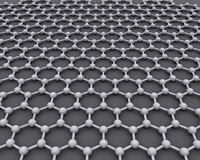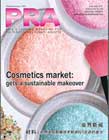PRA Chinese
Rubber Journal Asia Injection Moulding Asia Energy, Oil & Gas Asia
VISIT OUR OTHER SITES:
PRA Chinese
Rubber Journal Asia
Injection Moulding Asia
Energy, Oil & Gas Asia
Bio-based solvent produces highest quality graphene ink

A bio-based solvent, made from cellulose and produced by biotechnology company Circa Group, has been found to outperform traditional, toxic solvents in the production and dispersion of graphene, which is used in a range of high-value commercial applications.
The University of York and the Spanish National Research Council (CSIC Madrid) have reported that Cyrene, as it is known as, had “near-ideal physical properties for graphite exfoliation and the production of graphene dispersions”, the University of Manchester – the birthplace of graphene – has now successfully produced the highest quality conductive graphene ink ever reported using Cyrene instead of N-Methyl-2-Pyrrolidone (NMP).
These findings have far-reaching commercial applications and open up multi-million euro market opportunities for graphene in applications such as advanced composites and polymers, coatings, batteries and supercapacitors, 3D printed materials and functional fluids. More specifically, graphene inks can directly be applied to materials like textile and paper and used in many applications including transistors, sensors, antennas, radio frequency identification (RFID) tags and wearable electronics.
Fabien Deswarte, Business Development Manager at Circa Group, said, “Graphene is one of the world’s most important nanomaterials and the growing body of scientific evidence – generated by world-class research teams – further validates Cyrene as a viable alternative to toxic traditional solvents such as NMP. Graphene production and dispersion is one of the many applications Circa is targeting for Cyrene, which is outperforming traditional solvents in many high-value market applications such as the manufacture of specialty polymers and formulations of different kinds. For Circa and other companies looking for high-performance, non-toxic, sustainably-produced solvents – it’s a win-win-win situation.”
Established in 2006, the Australian Circa Group converts waste biomass into advanced bio-based chemicals with its proprietary Furacell process at its prototype plant in Tasmania – a joint venture with Norske Skog. Circa’s developing product portfolio includes biosolvents, flavours and biopolymers, including Cyrene, an alternative to traditional polar aprotic solvents. By creating renewable chemicals from cellulose, Circa is extracting value from non-food, waste biomass and addressing a gap in the market by providing bio-based, non-toxic alternatives.
(PRA)Subscribe to Get the Latest Updates from PRA Please click here
©2018 Plastics and Rubber Asia. All rights reserved.

©2018 Plastics and Rubber Asia. All rights reserved.
Home Terms & Conditions Privacy Policy Webmail Site Map About Us


































































